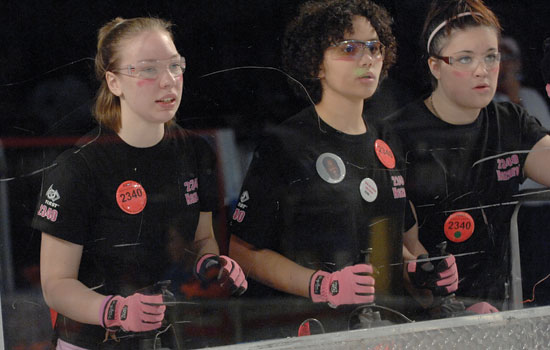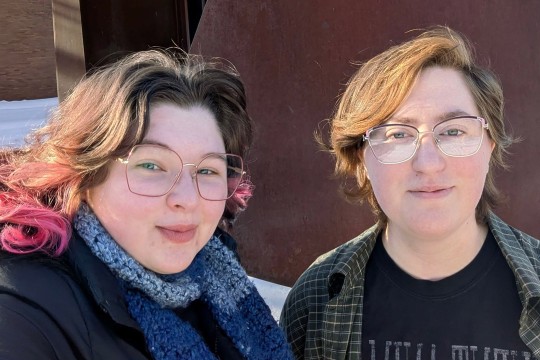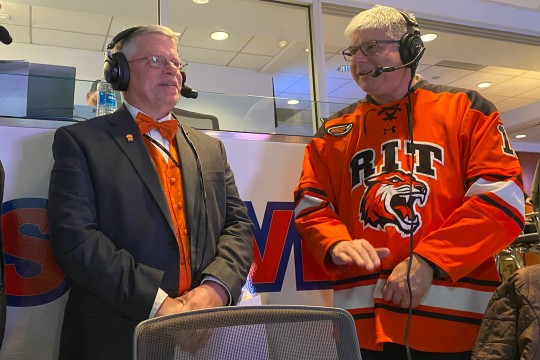On track to earning RIT’s first computing Ph.D.
A. Sue Weisler
Erik Golen happily encourages those computing Ph.D. candidates coming after him. He also suggests they pursue opportunities for collaborative research.
Erik Golen is looking at the needs of his fellow graduate students from a different perspective than he did while attending RIT as an undergraduate. Golen ’03 (computer engineering) is nearly finished with his doctorate in computing and information sciences. He will be the first student to complete the doctoral program offered through the B. Thomas Golisano College of Computing and Information Sciences.
Golen has found it both rewarding and challenging to be among the first to go through the program.
“Requirements and expectations are now different than when I started the program two-and-half years ago, and this is for the better since the program is moving towards a culture of research instead of coursework,” says Golen. “It’s rewarding to have the opportunity to give advice to the other Ph.D. computing candidates. I also think I’ve made things a bit easier for them in terms of setting a precedent for the dissertation proposal defense process since I was the first one to go through it.”
His thesis research is in underwater sensor networks and their deployment for military surveillance. It’s research he began while working as an engineer at the Naval Undersea Warfare Center Division Newport. Golen took part in a sea trial aboard the U.S.S. Cushing to examine different systems to detect submarines, a test he says he knew would fail.
“The sensors we were testing were meant to operate in hundreds of feet of water, not thousands, so there was no way they could have worked,” he says.
Adds Nirmala Shenoy, RIT professor of networking, security and systems administration and Golen’s adviser, “Erik’s research covers a very strategic study of the deployment of underwater sensors and networking such sensors to collect target data. His research takes into account all details that are significant for such deployment, which is very unique and would be an asset to military underwater operations.”
When not writing his thesis or spending time with his wife and 21-month-old son, Golen is among those trying to create a greater sense of community among the graduate students, now 16 percent of the RIT student body. He is a member of the Graduate Student Advisory Committee, with eight members, one representing each college. They plan social events for graduate students and hope to host a research symposium this summer. As of this academic year, there is a Student Government senate seat held by a graduate student.
“My advice to other graduate students is to not think that only their research or area of interest is important,” adds Golen. “By doing this, they’ll miss out on many opportunities for collaboration that exist. Interdisciplinary and collaborative research are what I believe will ultimately lead to the newest discoveries in the years to come.”













